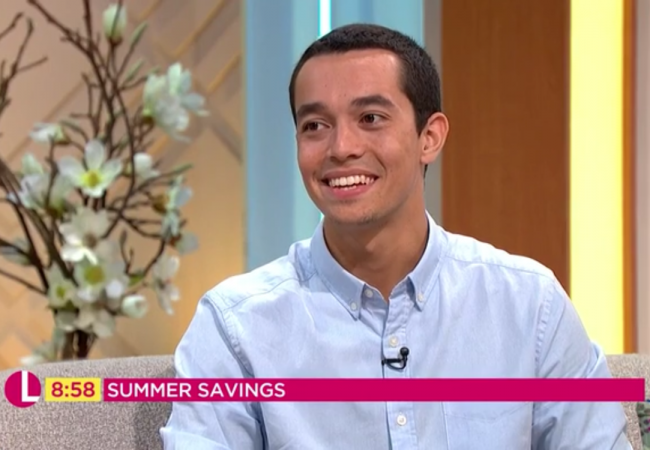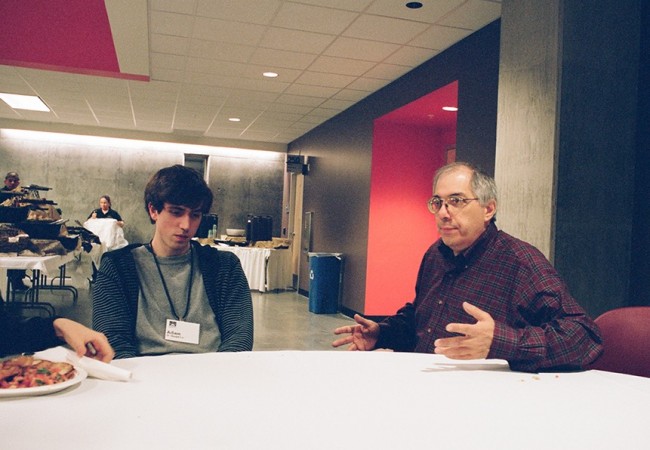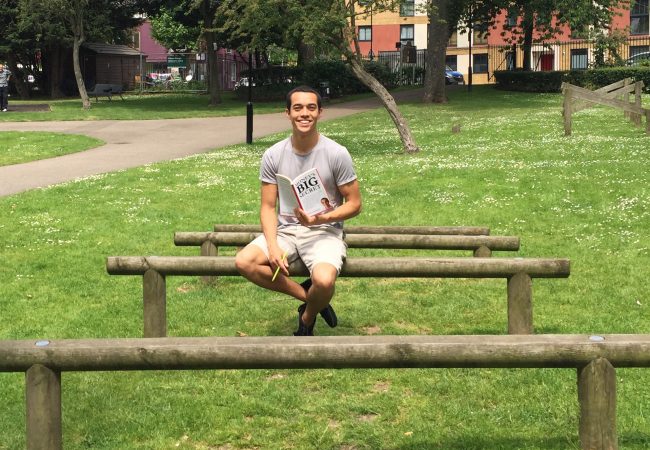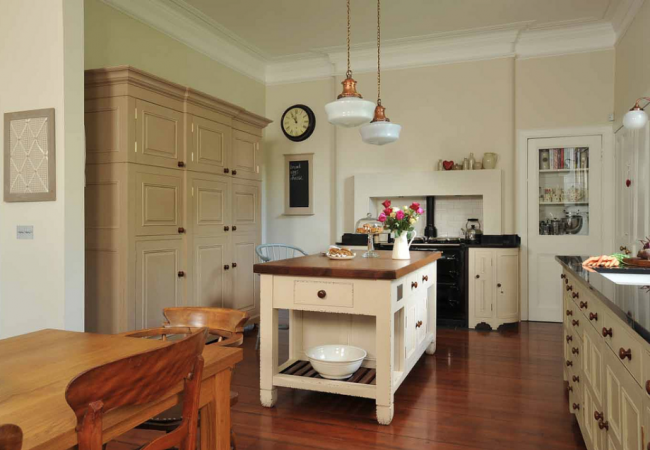Writing without readers? Tired of publishing content without it going anywhere? Not happy with the number of views your articles get? Try writing on Quora.

How to Get on National Television as an Expert
- Do you want to be on national television?
- Do you want to promote yourself, your business or your topic of expertise?
- In this article, I reveal how to break the media and get on the biggest shows: Step-by-step, with templates, checklists and real examples.
Television is still a powerful medium of communication that carries enormous clout. Deepak Tailor, founder of Latest Free Stuff, gained over 300,000 new users after appearing on BBC Dragon’s Den.
It can bring attention to you, your business and your expertise. In this blog post, I explain how I secure appearances on national TV shows. You can watch my first ever TV show here.
How To Get On National TV
Decide what TV shows you want to be on. They should have demographics which fit your interest. An easy way to figure this out is to ask, what TV shows are my competitors featured on? If none now, what about in the past? Use IMDB to research what shows they’ve been on. Create a list of targets.
Now research the producers of the shows. Producers are the people who organise everything. They don’t film, edit, or present but are the thinking heads which pull everything together. Directors have the vision, producers make it happen (that’s a very generalised way to look at it; and not always true!).
How Do I Find TV Producers to Target?
- Watch the show credits – at the end it tells you who the producers are (note – catch up services often cut out the credits so this may not be an option).
- Use IMDB and search for the most recent episode. You’ll find the name of the producers.
- Google, Twitter, LinkedIn and more.
- Cision Communications Cloud – The world’s biggest media contacts database. It costs money (thousands) but it’s what all big companies use. Particularly good for TV channel-owned producers, not so good for individual production companies.
It can take time to figure out email addresses and you may have to employ some creative thinking. Keep at it, you’ll get there.
Once you have a list of TV producers you now have to pitch.
How to Pitch to TV Producers
TV producers ideally want three things from “talent”:
- To see you on camera
- An existing audience
- An answer to “Why the fuck should I watch you?”
In more detail:
To see you on camera – You need to have video clips of yourself on camera. These do not need to be professional nor with massive view counts. When I pitched, I sent this video and this video.
- Side note – watch the videos I sent. They’re shot on my iPhone and there’s no external microphone. They primarily show one thing: I can talk and I can remember 60 seconds of information.
- Memory Hack – If you’re struggling to remember your script, download an app called BigVu. It’s an auto-cue or tele-prompt for your smartphone (it’s what professional mobile journalists use when on the road; there’s a monthly fee). So you look at the camera and read at the same time. Difficult to pull off without it being obvious (I recommend looking away from time-to-time and speaking fast), and of course during the real thing you won’t have this to fall back on.
It helps if your videos are relevant to the topic of your pitch. Remember producers are busy human beings and the dream for them is to see a video of you and think Wow! That would look so good on our show!
- It’s not what you say but how you say it – This adage is never more true than on telly. Use body language. Exaggerate your physical movement and when you think you’re looking like a dancing monkey, turn it up even more.
Body Language Exercise
To practice exaggerated body language present to camera imagining you’re holding a giant yoga ball. Arms outstretched like you’re inviting someone for a big hug.
Do your piece to camera with your arms out like this. Big, ridiculous and exaggerated arms. When you watch it back on camera, you’ll spot actually it doesn’t look that weird. Practice big body language and facial expressions; in the world of TV, bigger is better.
You can watch my first ever TV appearance here.
Why Having an Existing Audience is Better
Producers have one main concern: How to make a TV show that gets viewers. It all comes down to the viewers. More the merrier.
In turn, if you have an existing audience this checks two important questions:
- Will people like watching you on camera? Yes – you have an existing audience who love watching your videos.
- Is what you talk about of interest to people? Yes – you have an existing audience which proves there is interest.
So if you can, link to videos with viewer counts and in your pitch mention your existing audience. If you don’t have one then don’t worry. Skip past.
Why The Fuck Should I Watch You?
My brother was the only person I knew with a smidgen of TV experience. I asked him for his thoughts on how to pitch to producers. He said, “Answer this: Why the fuck should I watch you?”
The question was raw and hard to answer.
One technique is to use a news hook. “Hey Sam, have you seen this really important thing is happening? I can give your viewers this entertaining and interesting answer.”
In the national media I position myself as a deal hunter, consumer and money expert. That’s my niche for Latest Deals (my business). So I find relevant news stories or studies to match.
You can do the same – whether you’re in business, sports, fashion, cooking, health and anything else.
Template Pitch Email:
Subject: Feature? Food Bills Rise £180 – 3 Ways to Beat It
Hello Tom, I hope you’re well. Would this story be of interest for your show?
- Food bills are set to rise 10% next year (link to story). Families are set to be out of pocket by £180.
It’d be good to come on and show viewers how to avoid this:
- Example solution 1 (one line)
- Example solution 2 (one line)
- Example solution 3 (one line)
On background, my name is Tom Church and I am a Consumer Expert. You can see examples of me on camera here and here.
I run a money saving community of 350,000 members called LatestDeals.co.uk. If this would be of interest, please call me any time on 077** *** **2.
Either way, thank you kindly for your time,
Tom
This is the exact pitch email I used to secure my first national TV appearances. The story has been modified, but the essence is the same.
What Happens Next?
Most TV producers won’t reply. Don’t take it personally. Either they didn’t have time or it wasn’t right for them at that moment.
In your media list (I use a CRM called Capsule) keep track of who you messaged and when. Set yourself a task to follow up the next month with a new relevant story.
If you get a reply, it may be by email or telephone. I find producers tend to talk very fast and are extremely practiced at soft talk: making “talent” feel good about themselves. Don’t mistake this for an opportunity to give them your life story. Keep your answers succinct and turn it around – how you can help them.
Screen Tests
Screen tests are when you do a practice run of the show, like a rehearsal. They want to see how the idea will work in practice.
You may be invited to do one and you should consider it an interview. Will you break on camera? Will you remember your lines? Will you be able to improvise when things go wrong?
But a screen test is not all about you. It’s also to see whether the idea works for their viewers. You may be brilliant and whack it for six, but it might just “not be right”.
The screen test is as real as it gets. You’re invited to the studio (get there early), wired up (given a microphone), and given instruction.
- Don’t be afraid to say it’s your first time
- Jargon – ask what things mean if you don’t know
- If you’re unsure, double check
Be sure to have practiced a lot beforehand – but more on that later.
Follow Up
If you have a screen test, meeting, or telephone call that sounds positive then follow up. Two days later (not immediately like a begging dog) send them an email asking for feedback. Just a short, succinct message will do.
How to Prepare for National TV
National TV including live chat shows are largely scripted. It is probable that you will work with a producer in the run-up to it.
My technique was to say yes to everything. Be easy to work with and agreeable. If they want you to say something – as long as it’s not something awful – say it. Don’t squabble over the script and also don’t worry about memorising it… yet.
Generally speaking, you’ll agree on a few points to talk about.
How to Learn the Script
- Read the script out loud, word-by-word, 10 times in a row. Every time your attention drifts, stop. Go back and start again. After my first TV appearance many said I looked like a “natural”. The truth is I had said it so many times days prior that I was utterly bored and could have been asleep.
- Stand up in front of a mirror and say your script ad lib in three different ways. This is important – if you memorise your script word for word, you will be caught off guard and stumble. If you learn the key points but are able to say it in many different ways, you can react to the action.
- Time yourself. Your TV segment or feature will be for a certain length of time. For live TV this is especially important as there is no editing. Practice your timing and if you’re short think of extra things to say; if you’re long cut stuff out (but remember it just in case).
Your TV Preparation Checklist
This is my real checklist I use for every time I go on a TV show. It’s made on Apple iOS Reminders (which I like because you can re-use checklists):

- Practiced?
- See above for notes on how to practice – I do this for every appearance.
- Cue Cards
- Watch a TV chat show. Notice they hold cards with notes on them. These are called Cue Cards. Normally, a producer will prepare them for you. But, they can be horrifically formatted. So prepare your own like big flash cards. The key points with numbers; big enough font so that you can see the information in a split second glance. Bring pritt stick and scissors so you can cut the paper and stick it on the cue cards. If you’re not given any, ask for them.
- Once you’ve been on the show, keep your cue cards. I’ve re-use my cue cards so that I can prepare them at home. I don’t tell the producers and usually just swap them when they’re not looking.
- Publish Show Notes Online
- Why are you going on TV? If it’s to help your business then prepare for your exposure. I publish my Show Notes before the show goes live so that if anyone is searching for it they find the information on my site.
- Clothes Washed & Ironed
- Nicolette Amette, producer of Good Morning Britain (one of the UK’s most watched daily chat shows), gave me the advice of wearing plain pastel colours. Never black.
- Be sure to have them washed, ironed and ready for the big day.
- Car Booked
- Sometimes TV shows will organise a car to come and pick you up. If not, be sure you’ve organised your own means of transport.
- Back-Up Plan
- If your transport is down, how will you get there? Have the plan ready and written down.
- Alarm Set
- Morning shows have early starts. Set your alarm.
- Back-up Alarm (separate device)
- Water Bottle
- This may just be me but when I’m nervous my throat becomes dry. Not a good side effect for a TV. I prepare a bottle of water and ask for a mug of water when I’m on the show. This is also in case of a cough or if I get tempted like Richard Branson to pour it over the presenter’s head.
- Research Presenter
- If you’re going on a show with another presenter, research them. Who are they? Where are they from? What else do they work on? Find some common ground. You’ll have much better chemistry if you know something about them.
- Shaved?

On the Day: What To Expect
My experience is with live TV shows, so that’s what I’m going to share here. I don’t yet know about pre-recorded shows (something I’m working on now).
The truth is TV studios are not glamorous. They represent the backstage of a theatre. Were you ever in a school play? If so, when you’re on set it feels much the same way.
The stage is all for show. Most of it is made with MDF, velcro, and a quick paint job. It’s remarkable how bright and lovely it looks on TV in comparison.
But having said that, the number of cameras and bright lights is impressive. They silently glide around the room and huge credit must be given to the camera operators who seem like ballerinas with these massive machines.
It can be intimidating to have 30 cameras in your face but you quickly get used to it. And if you’re on a talk show as a guest you won’t be looking down the lens – talk to the presenter.
Ear Piece
You may be given an ear piece to wear. In the UK they call them “ears”: Are you on ears? This is to connect you to the director who may be watching from a closed booth elsewhere (soundproofed so that his voice is not broadcast).
You can usually ask whether you want to listen to all the conversations happening including whilst you are talking, or what they call “switch-back“. Switch back is my preference – you’ll only hear talking when the director is specifically talking to you. The other option, “open“, or “all ears” is difficult and distracting – but can be a fun experience.
The director may count you in… “Rolling in 5, 4, 3, 2, 1…” or count you out, “30 seconds left”. But do not rely on this; they may say nothing at all!
Be Ready to Improvise
On live television things change. Your script will go out the window. The presenter may ask you a question you have not prepared for. A graphic may not show. The lights may go off. A cow might walk in.
React to the action. Do not just stick to the script and ignore what’s happening. That’s not natural. You’ve practiced different ways of saying your key points so adapt and bring it back to comfortable grounds. Two key phrases to learn:
- I don’t know about that but what I do know is…
- Yes, and that reminds me…
These will help you respond to any tangent and bring it back to where you are confident.
Be Ready to Skip
Producers like to prepare double the amount of material so you’ve always got enough to talk about. There can never be silence. But this means you’ll have to learn to skip past things.
The presenter doubles-up as a time keeper. You may be half way through your point when they interrupt:
“That’s great to hear, now what can you tell us about this other thing?”
They’re not being rude – you’re just running out of time and they’re giving you a nudge to switch to your next point. React accordingly.
What Traffic, Results or Conversions Do You Get From TV?
If you’re in sales or running your own business, this is all you’ll care about. How does national TV convert?
If your appearance on TV is indirect to your business, as mine is to Latest Deals, in the sense that you are an expert on a topic and not just plugging a call-to-action to your business, one appearance on national TV does not convert.
I track all the stats (live Google Analytics, search queries etc.) and there’s barely a bump. Do not expect TV to be your golden ticket to a pay day.
However, there are indirect benefits:
- Network Effect – the more people recognise you, the more they like you. You gain trust.
- Credibility – Ooo, he’s the fella from the telly. You gain an X-Factor which helps with sales.
- Social Signals – A combination of the above: if you spot a crowd outside a restaurant, you know it’s good.
You can use these indirect benefits to help your business.
Having said this, I can only speak from my current experience. The next step-up from National TV appearances is to host National TV shows. It is my untested hypothesis that the more you are on TV the more you will convert due to the network effect.
On the flip side, if you’re appearance on TV is directly in relation to your business and somehow you’ve figured out a way to talk about how awesome your product is for 10 minutes – congratulations, that’s as good as it gets.
I hope this blog post helps you learn how to get on TV. To get a heads-up on my new blog posts press the follow button:
-
- ✓ Monthly best books to read
- ✓ Interviews with world experts
- ✓ Tools and resources



